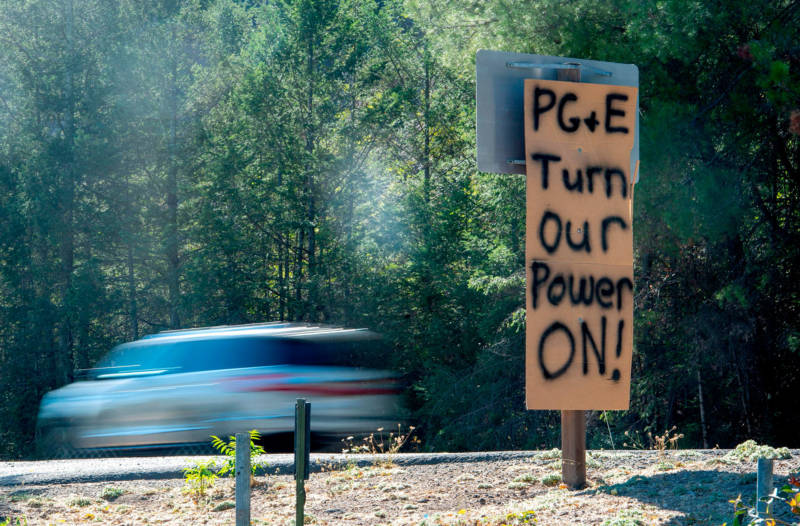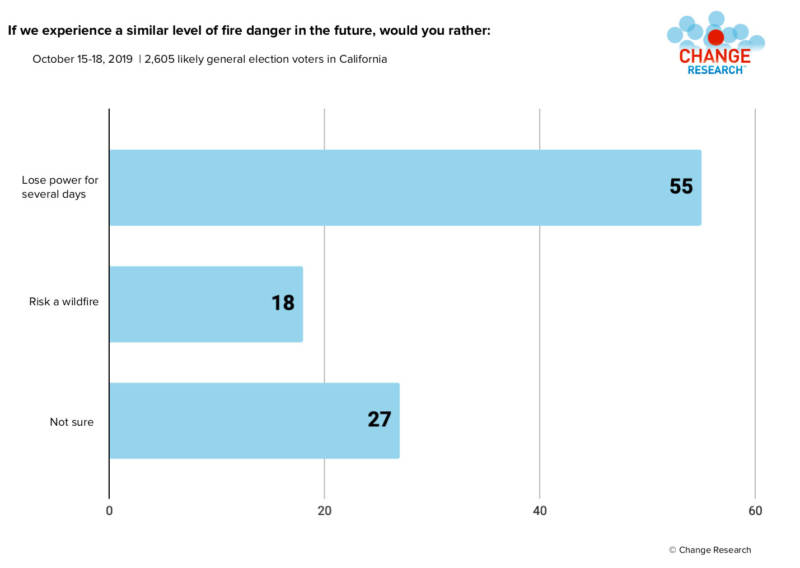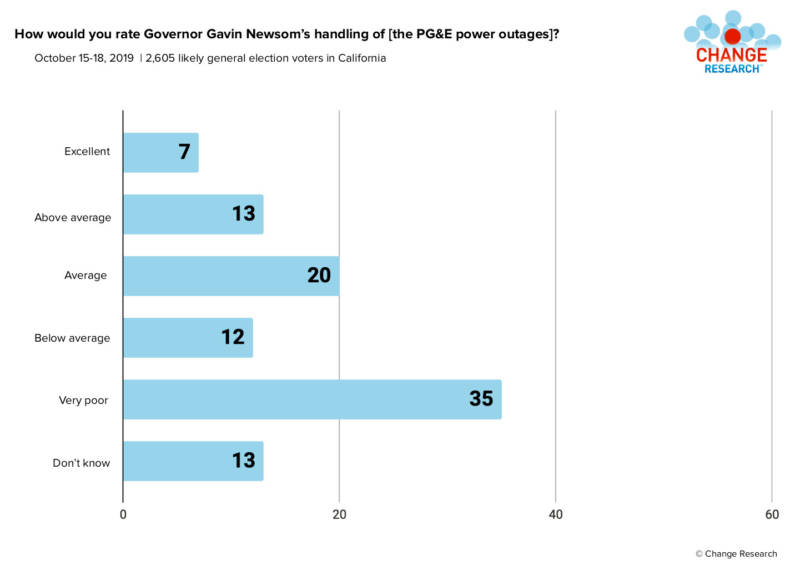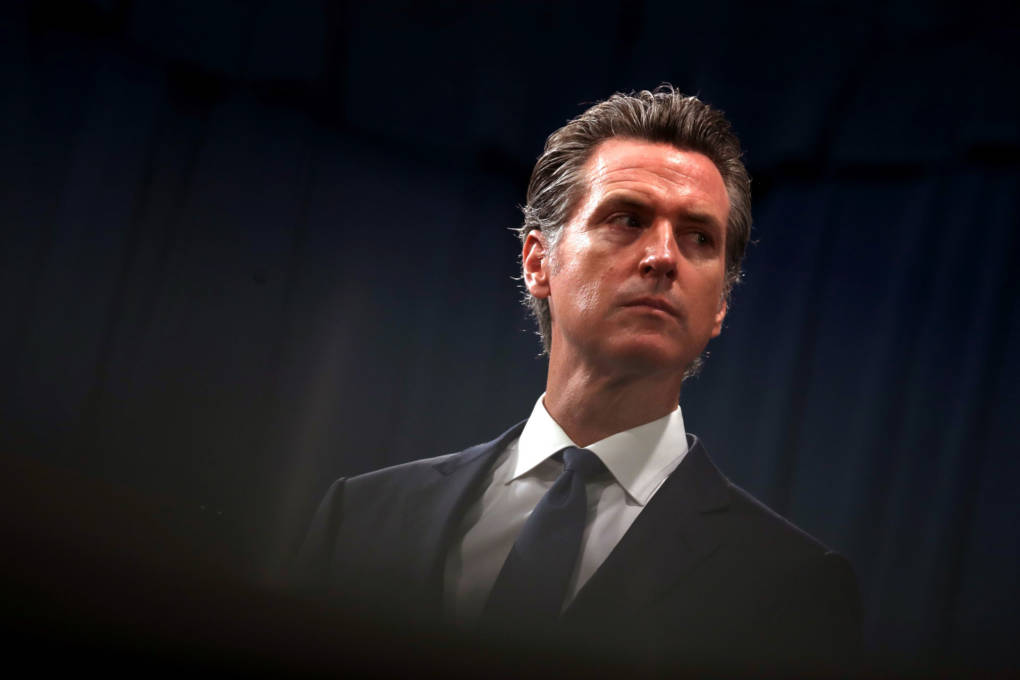Overall, just 20% of respondents said they viewed the first round of outages as necessary, with 53% saying they were not. And 63% rated PG&E’s handling of the incident below-average or very poor — a response that crossed party lines.
But things get more complicated when you dig a bit deeper.
In bad news for PG&E, a plurality of respondents — 40% — said they think PG&E should be broken up into smaller regional utilities; 30% supported a public takeover of the embattled utility. Just 1 percent backed what the poll called “a public bailout.”
And reflecting the growing frustration with PG&E, Californians appear to have soured on the entire investor-owned-utility structure, in which publicly traded companies get a monopoly to provide a utility to the public, and receive a guaranteed profit margin, but are regulated by the state.
A solid 62% of those polled said it’s a bad idea to have a utility’s shares traded on Wall Street. And 77% agreed with the statement, “It’s always a bad idea to have investor owned public utilities. They’re more concerned about shareholders’ returns than creating a safe infrastructure for the public.”
“Californians have lost faith in large, Wall Street-driven publicly traded companies to put people first,” Reilly said. “The plurality of Californians, 40%, want the basics — light, power and public safety — to be managed by smaller, regional utilities that will prioritize community interest over investor interest. Another 30% want the state to take these companies over.”
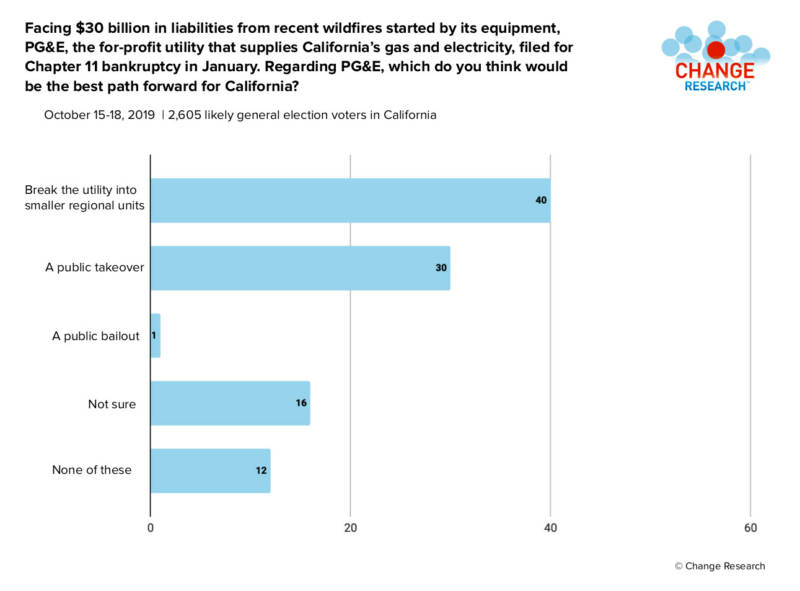
But interestingly, just 18% of those polled blame inadequate PG&E equipment as the biggest driver of wildfires in recent years — even though the utility has admitted fault in the deadliest, most destructive wildfire in modern California history and is blamed by state investigators for other destructive blazes in recent years.
Still, 30% said inadequate forest management was to blame for recent wildfires, and 29% said climate change is the culprit.
The conflicting feelings among poll respondents in some ways mirror the evolving position of state lawmakers around how to deal with PG&E.
